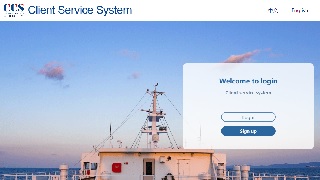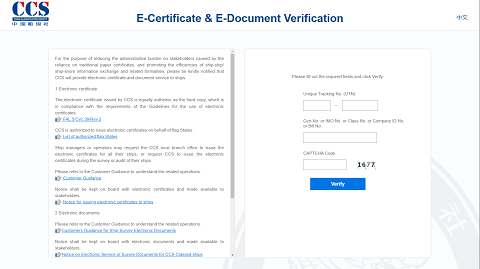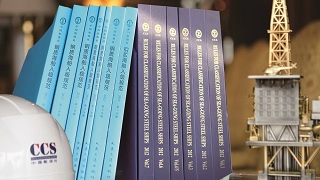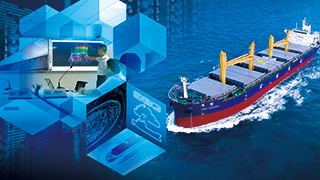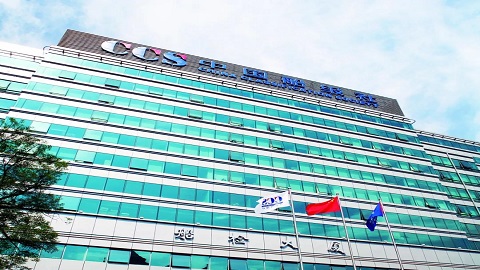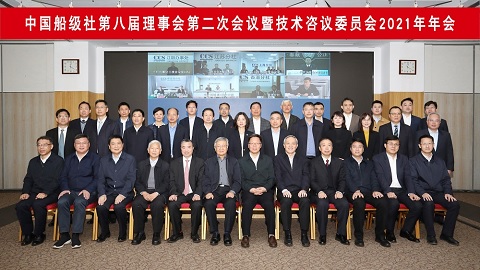01/01.1970
IMO Mechanism for ship fuel consumption data collection and EU Regulation on the monitoring, reporting and verification of carbon dioxide emissions from maritime transportBackground:Shipping is a huge and evolving source of
greenhouse gas emission. Reducing or limiting greenhouse gas emissions from
shipping will bring significant effects in controlling climate change. In most
cases, shipping is more energy efficient than other modes of transportation.
According to IMO statistics, if the greenhouse gas emission from shipping is
not controlled, the ratio of the emissions to the total global emissions will
rise from the current 3% to 5% in 2050, which does not match the global target of
controlling global warming below 2 degrees Celsius by 2050. In 2011, IMO
introduced the mandatory requirements of the Ship Energy Efficiency Design
Index (EEDI) and Ship Energy Efficiency Management Plan (SEEMP), and planned to
adopt the market mechanism method to effectively control the total greenhouse
gas emissions from shipping in the next step, and to collect the annual CO2 emission
data and related energy efficiency information of shipping companies and their ships
to provide a basis for implementing the market mechanism of shipping greenhouse
gas emission.EU shipping CO2 emissions monitoring,
reporting and verification (MRV) regulation:The European Parliament and the Council adopted
the Regulation No. 2015/757 on the monitoring, reporting and verification of
shipping carbon dioxide emissions on April 29, 2015, requiring that ships to
which the Regulation applies should prepare and implement a “Monitoring Plan”
on CO2 emissions, and submit the annual CO2 “Emissions Report” to the EU and
flag states after the end of each reporting year.1) Scope of application:● Applicable to ships above 5000
gross tonnage in respect of CO2 emissions released during their voyages from
their last port of call (loading and unloading port) to a port of call under
the jurisdiction of an EU Member State and from a port of call under the
jurisdiction of a Member State to their next port of call, as well as within
ports of call under the jurisdiction of a Member State.● Not applicable to warships,
naval auxiliary vessels, fishing vessels or fish-factory vessels, simple wooden
vessels, non-power-driven vessels, and non-commercial government vessels.2) What shall companies do?● By August 31, 2017, companies
shall submit to the verifier approved by EU a “Monitoring Plan” for each of
their ships, which is applicable to the EU MRV Regulation.● On January 1, 2018, companies
shall begin to implement the “Monitoring Plan”, which has been verified
as satisfactory by a verifier.● From 2019, by April 30 of each year,
companies shall submit to the EU and the authorities of the flag states
concerned an “Emissions Report”, which has been verified as satisfactory by a
verifier.● From 2019, by June 30 of each year, ships arriving at, within or departing from a port under the
jurisdiction of a Member State, and which have carried out voyages during the
reporting period, shall carry on board a Document of Compliance of the annual
emissions report issued by the verifier.Amendment to MARPOL Annex VI (MEPC.278(70)):The Maritime Environment Protection Committee
of the International Maritime Organization (MEPC) adopted the Amendment to MARPOL Annex VI in
October 2016, and established a fuel consumption data collection mechanism,
requiring that ships to which the convention applies should prepare and
implement the “Ship Fuel Consumption Data Collection System (DCS)” (as Part II
of SEEMP), and submit the ship’s annual fuel consumption report to the flag
state or its authorized organization after the end of each reporting year.1) Scope of application:Applicable to ships of 5000 gross tonnage or
above engaged in international voyages in respect of fuel consumed in the
reporting year during their voyages.2) What shall companies do?● By December 31, 2018, companies
shall submit the “Fuel Consumption Collection Plan” of each ship to which the
Amendment to MARPOL Annex VI applies to, and obtain approval of the flag state
or its authorized organization.● On January 1, 2019, companies
shall begin to implement the “Fuel Consumption Collection Plan”, which has been
approved by the flag state or its authorized organization.● From 2020, by March 31 of
each year, companies shall submit the annual fuel
consumption report of the ship to the flag state or its authorized organization
for verification.● From 2020, by June 1 of each year, applicable
ships shall carry on board a Document of Compliance of annual fuel consumption
report issued by the flag state or its authorized organization.Our services:1) Plan approval and report verificationChina Classification Society (CCS) is ACCREDIA certified and has obtained the EU MRV verification qualification, providing “Monitoring
Plan” and “Emissions Report” verification services for ships to which the Regulation
applies.As an organization authorized by the flag
state, CCS provides the approval service of the “Ship Fuel Consumption Data
Collection Plan” and the verification service of the “Ship Fuel Consumption
Report” for ships to which the Amendment to MARPOL Annex VI applies.2) “Guidelines for the Implementation of Ship
CO2 Emission Monitoring, Reporting and Verification”The Guidelines give guidance to shipowners or
companies to compile and implement the ship CO2 emission monitoring and fuel
consumption data collection plans in accordance with the requirements of EU MRV
Regulation and Amendment to MARPOL Convention Annex VI, and collect annual CO2
emission report and fuel consumption report, and also provide guidance for plan
approval and report verification;3) CCS MRV system: CCS provides customers
with general management tools for ship CO2 emission monitoring, assessment and
reporting to improve data quality and management efficiency.● Ship energy efficiency data
collection and monitoring (ship-side)Collect voyage data of a single ship,
evaluate data quality, make statistics and submit voyage and annual reports.● Ship energy efficiency data
management system (network-side)Collection and management of company fleet
voyage data.Compare with theoretical data, historical
data, and data of ships of the same type to evaluate data quality.Comparative assessment of internal and
external energy efficiency levels of the company.Statistics and submission of the “Emissions
Report”.4) External trainingIn response to the needs of shipping
companies, CCS conducts external training on the “Implementation and Response
of Ship CO2 Emission Monitoring, Reporting and Verification” to enable relevant
personnel to understand the requirements of regulations and conventions, so as to
ensure the effective implementation of the “Monitoring Plan” and the correct
collection of emission report data.Impartiality and independence:To ensure the impartiality and independence related to verification activities carried out by
CCS comply with the requirements of regulation and standard, the below MRV application will be
rejected by CCS: (1) The confirmation or verification application from the applicant that CCS has provided the
technical services to, and(2) CCS has the relationship with those who provided technical
services to the responsible party that support the poses an unacceptable risk to impartiality. To ensure the impartiality and independence of MRV verification relevant staff, CCS will
ensure: 1) shall not use the personnel with actual or potential conflict of interest to carry out MRV
verification activities; 2) the personnel who carried out assessment of monitoring plan, shall not verify the emission
report for the same vessel; 3) shall not use the personnel who provide the technical service to the company to carry out the
verification activities;
All the verification activities carried out by CCS will be done independently. In order to assist company to understand the convention, regulation and related guidelines,
CCS will carry out training about those public information, but that does not mean the companies
that are trained would be simpler, easier, faster, or less expensive when apply CCS verificationRelevant documents and software1. Application for the verification of IMO DCS or EU MRV2. CCS Green and Ecological Ship Management System3. The Notice of IMO DCS and EU MRV verification4. Ship Energy Efficiency Data Collecting and Monitoring System5. Guideline for the Monitoring, Reporting and Verification of CO2 Emissions, 2018For more details, please contact us:Contact: Liu YangTel.: 0086-10-58112473
E-mail: liuyang@ccs.org.cn

